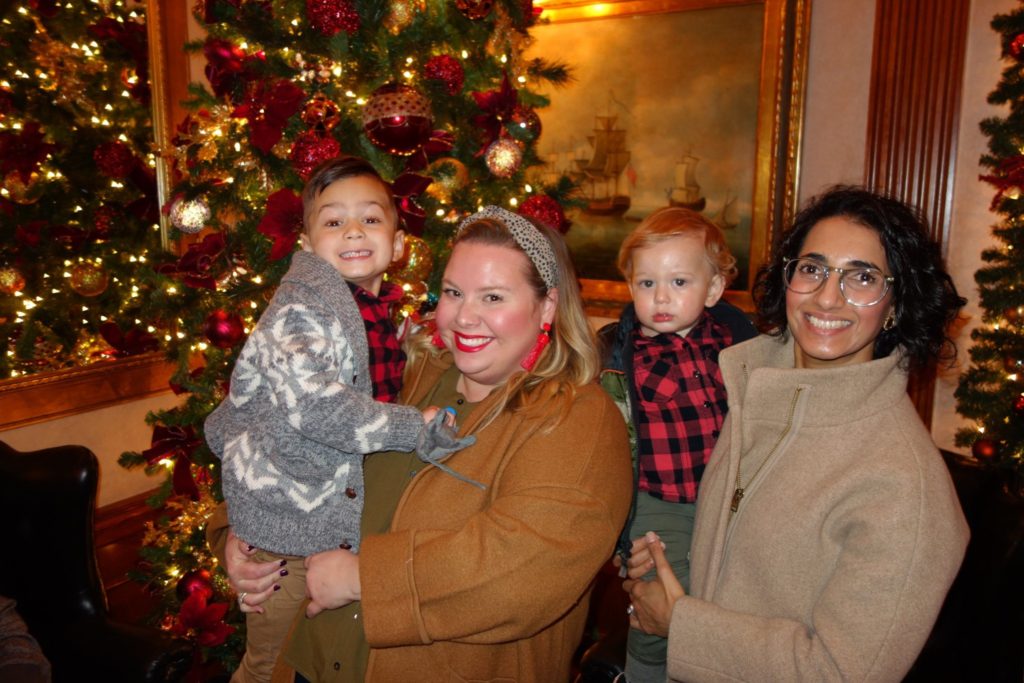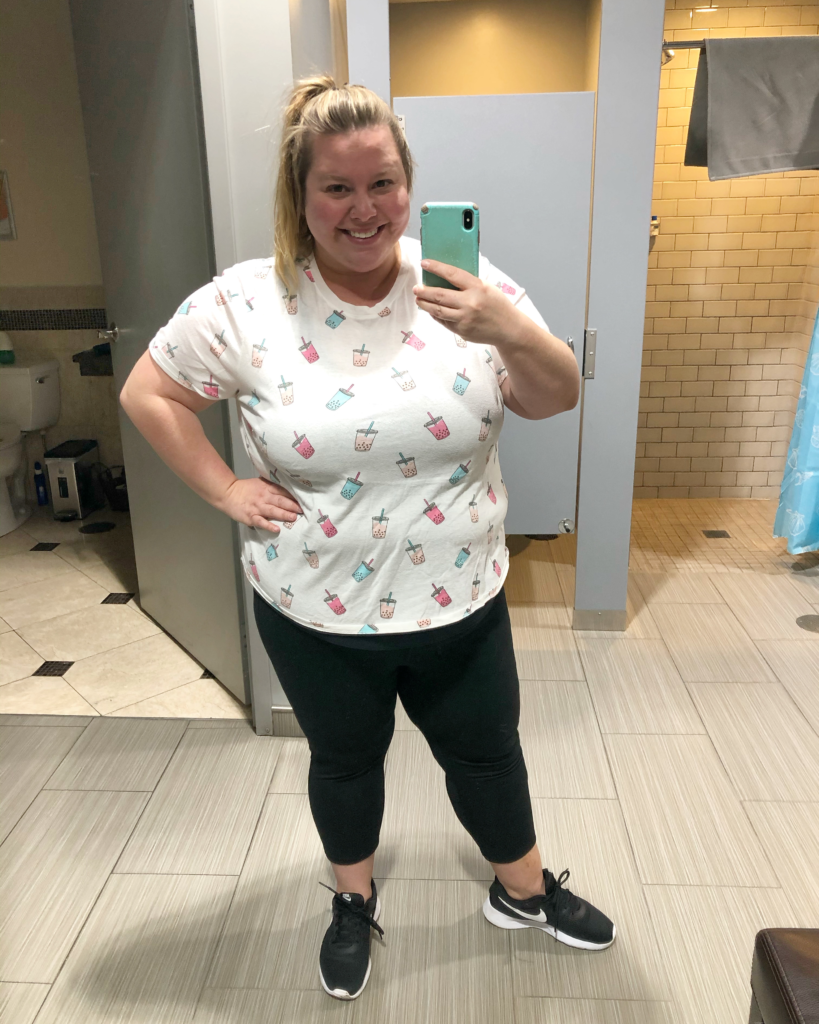No, I’m not talking about THOSE words. Although, we’ve had our experience with them, too. Remember when, at around 2.5, Finn developed a fondness for exclaiming–with impressively accurate emphasis, I might add–“Oh, SHIT”?
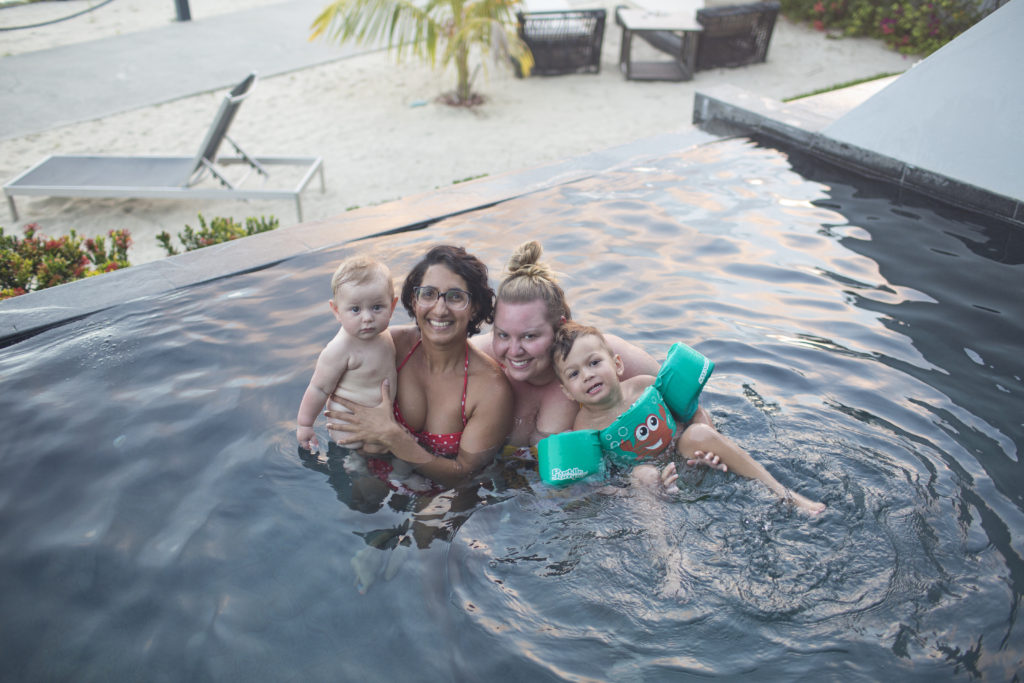
No, I’m talking about a word that, to many, has a considerably different connotation than it has in our two-mom household.
Our family’s 5-letter word–the one that elicits near immediate shock and awe and, if I’m being honest, a bit of awkwardness–is DADDY.
Daddy. Dad. Father. Papa.
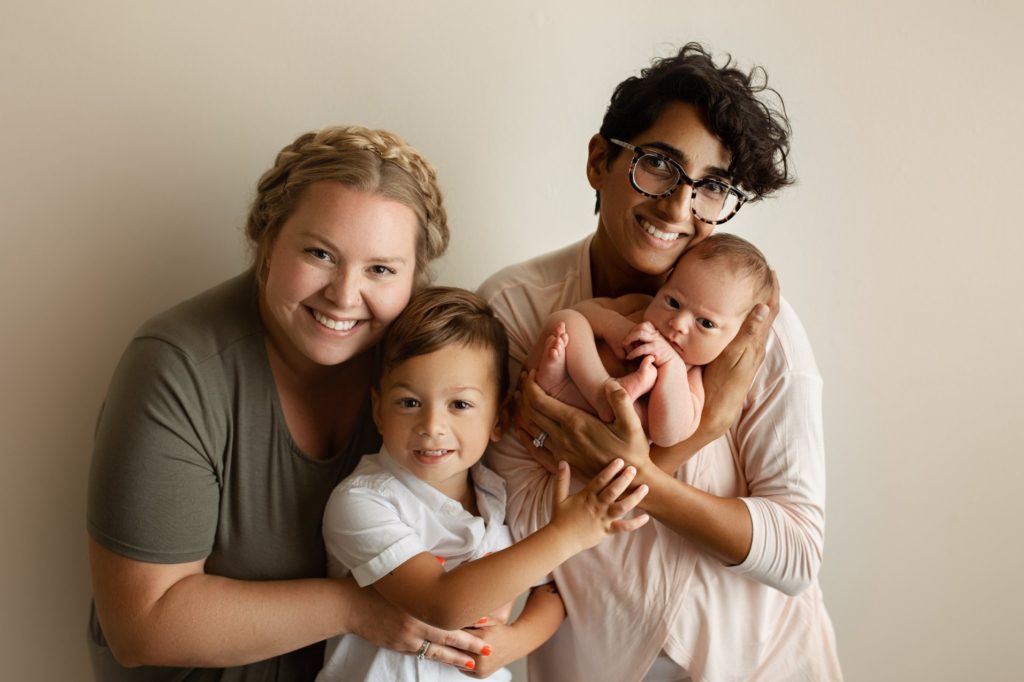
Those words didn’t always trigger us in the way they do now. Admittedly, neither Sona nor I have really close (or healthy?) relationships with our father figures. My step-father, Rich, is the most consistent male figure in our–and thus, our boys’–lives, but I’ve always just called him by his first name. So, though we’ve explained it to them in the past, I’m not sure that Finn and Elias register exactly how Rich–or, to them, Pops–fits into our family.
More importantly, they haven’t grown up hearing either Sona or myself call anyone “Dad” with any regularity.
Still, they aren’t obtuse. They live in a media-heavy world, surrounded almost entirely by representations of “normative,” heterosexual parents–even in 2020.
Whether its a pants-less tiger or a baby vampire on one of their favorite TV shows or a character in one of their most loved children’s books, whether it’s a llama or a superhero or an animate car or another little boy, most of the kids they digest as part of their multimedia diet have hetero parents; they have a mom and a dad.
Of course, we’ve tried to offset these biases by deliberately exposing our boys to alternative family structures. Though, it can be really difficult to find representations of different kinds of families in anything other than a book called Different Kinds of Families, and I’m more than a little wary about anything that reads as being too didactic. They are kids, after all. I don’t want to lecture them; I just want them to see families that look like theirs–and in the same kinds of contexts in which they see families that don’t.
Can someone please write a series of books that aren’t at all about same-sex parents but where the kids just happen to have–as an aside, not as a central plot-line–same-sex parents?
This is why there is so much value in shows, like Sesame Street or Arthur, that feature same-sex couples or same-sex weddings without highlighting them as being somehow different. They just are.
After all, we don’t learn about our world by being lectured to. We learn about our world by experiencing it. And I want my boys to experience a world where the families they see all around don’t constantly remind them that their own family is different.
When I first read online that Disney is likely going to give Elsa a female love interest in the next iteration of Frozen, I sobbed. Do you know what it would mean to my son–the one who, just this morning, had me play “Elsa’s song” three times on the way to school–if the character he so loves ended up, like his own mothers, loving another woman? It would mean the whole fucking world. That’s what.
I’m no stranger to what it is like to look at the world around you and see not a mirror, reflecting who you are, but a wall, reminding you that you don’t quite belong with everyone else.
Growing up as a lesbian, especially a lesbian in a small, Southern town, a lot of my own anguish centered around coming to terms with my sexuality was not that I felt bad about myself for being gay. Rather, it was that the world was constantly telling me–or showing me–that I was different, and I, like so many others, internalized that difference as bad.
That is, representation matters. Seeing only straightness or thinness or whiteness or richness or Christian-ness or able-bodiedness reinforces the narrative those those things are normal. They are good. And if you live in this world and aren’t those things? Well, it is nearly impossible to escape the suffocating weight of stigmatization that accompanies your own knowing–your own understanding–that what you are is, ultimately, an other.
I’ve never actually said this aloud, but to this day–20 years into a loving relationship with another woman, having an advanced degree and a successful career, being nearly 40 years old–I still catch myself wondering, “Is something wrong with me for loving other women?” I was raised on representations of relationships that only depicted love and attraction as things shared between a man and a woman. And no matter how long I’ve spent writing my own story, one that veers away from that narrative, I still have so deeply internalized that male-female love is normative that I question my own. (I could go off on a whole tangent here about the impact this has on the health of same-sex relationships, but we will save that for another time.)
This is all to say that, as Finn gets older, becomes more familiar with the families of his friends and classmates, and absorbs the media-driven representation of what a family looks like, he’s starting to realize that his family is different than many of the ones he sees.
He hasn’t said this, explicitly, nor has he asked questions about why he has two moms, but it’s clear that he’s been ruminating on what, exactly, a “dad” is–and why he doesn’t have one.
Earlier this year, he jokingly started calling Pops, my step-father, daddy. He said it facetiously, laughing after, but my mother was quick to come home and tell us about it, a deeply concerned look on her face. That concern wasn’t really rooted in a fear about how to respond; it was rooted in a fear that Finn had finally figured it out. The jig was up. He realized that he didn’t have a father–and that he should have one.
We blew it off and didn’t make any attempt to acknowledge his comment afterward. And truthfully, Pops is the closest thing our boys have to a father, and they are lucky to have him. I’m comfortable–maybe even relieved?–with their conceiving of him in that way.
After all, Finn has always seemed to have a pretty intuitively fluid conceptualization of what families look like. He calls Sona “Mommy” and me “Momma,” and, to him, those are distinctly different roles. Just try conflating them and see how quickly he will correct you.
When I say things like, “Darcy has a mommy and a daddy,” he’s quick to snap back, “Yeah, but she doesn’t have a momma.” He’s always considered having two mothers a bonus, and his school friends have been known to complain to their own parents that they don’t have two mothers like Finn.
One time, we were walking through our neighborhood, and we saw a little girl with three women. “Look! She has three mommies!” Finn said excitedly.
But increasingly, the “daddy” thing has become a more apparent fixation of Finn’s. He’s saying it a lot, and he knows that it elicits an awkward laugh, which is likely one of the reasons he keeps saying it.
Every morning this week, as we walk into his Pre-K classroom, he shouts “Daddy!” at his male teacher, Mr. Dom. We all laugh. Finn laughs the hardest. But beneath my laughter is some sadness.
The thing is, I’m sad for Finn in the same way I was sad for myself when I realized I was gay. That is, I don’t actually feel bad for Finn. Finn will be fine. So will Elias. I have complete, unwavering confidence in the family Sona and I have created to support our sons.
There is nothing missing.
We are whole.
They are loved every bit as much–and likely more–than every kid who has both a mother and a father.
Science agrees me. As there are multiple studies, like this one and this one, which evidence that children of same-sex parents, especially lesbian parents, are happier, healthier, and more successful than their peers.
But still, I know how the world sees us–even those closest to us. I know what people say behind closed doors. I know that folks worry that Finn and Elias are going to have trouble developing, especially because they are boys, without the presence a dad.
And if someone tells you that something is a problem enough times, even if they communicate it implicitly, doesn’t it become a self-fulfilling prophecy? If Finn believes something is wrong with his family becomes there’s no father, does not having a father then become an obstacle to his own happiness and fulfillment?
I don’t know, and that’s the source of the awkwardness and awe.
I know we aren’t harming our boys by raising them without a dad, but I don’t know if I can protect from a world that tells them that that absence is harmful.
For now, we will just continue to laugh it off when Finn calls people–including myself and Sona–“Daddy.” We will read him the few inclusive, albeit banal, books about families that come in all shapes and sizes. We will talk with him, as appropriately as we can, about what our own family looks like.
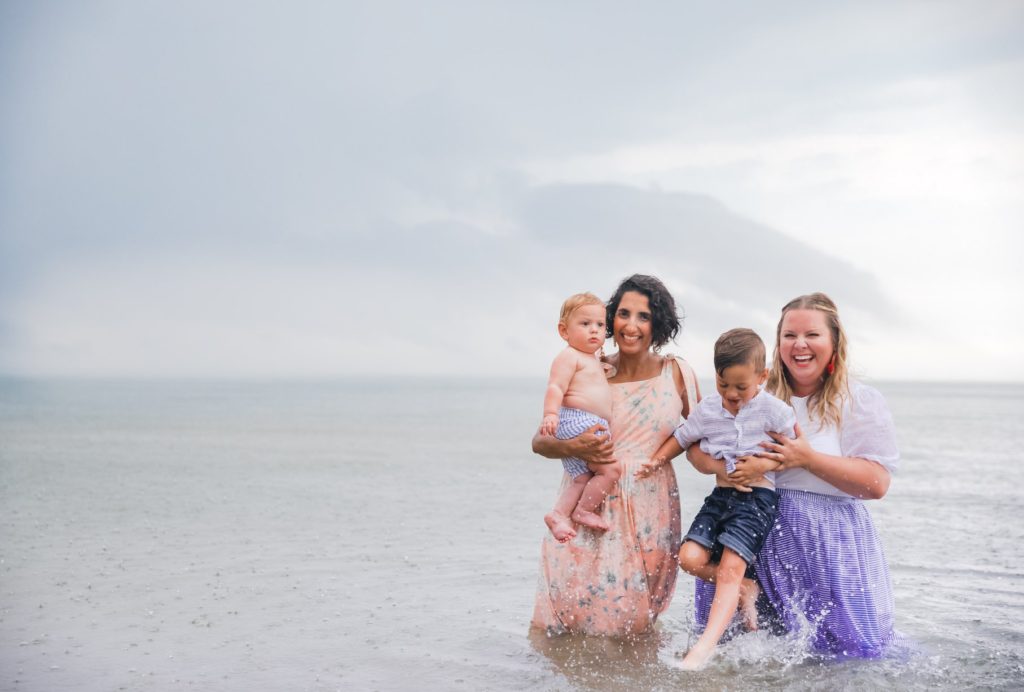
But if your biggest concern is that your little one is going to say “shit” or “fuck” sometime soon–if that’s the word your family most fears–consider yourself lucky, because the world probably considers you “normal.” And our little ones? They know that.
